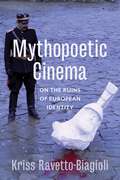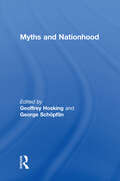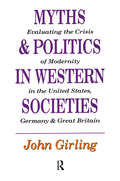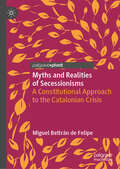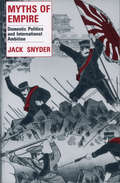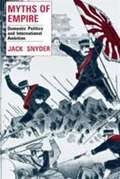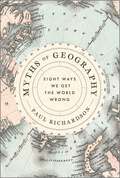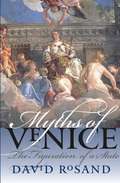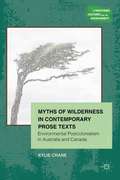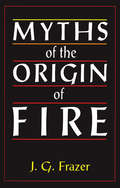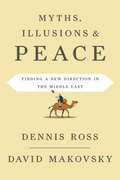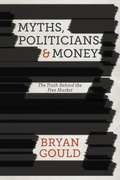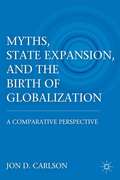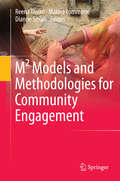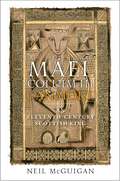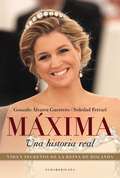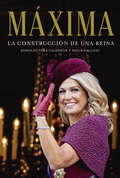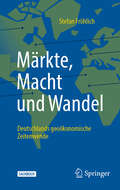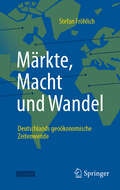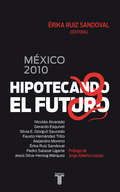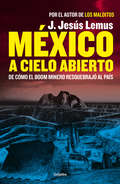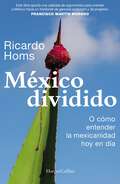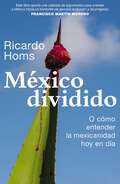- Table View
- List View
Mythopoetic Cinema: On the Ruins of European Identity
by Kriss Ravetto-BiagioliIn Mythopoetic Cinema, Kriss Ravetto-Biagioli explores how contemporary European filmmakers treat mythopoetics as a critical practice that questions the constant need to provide new identities, a new Europe, and with it a new European cinema after the fall of the Soviet Union. Mythopoetic cinema questions the perpetual branding of movements, ideas, and individuals. Examining the work of Jean-Luc Godard, Alexander Sokurov, Marina Abramović, and Theodoros Angelopoulos, Ravetto-Biagioli argues that these disparate artists provide a critical reflection on what constitutes Europe in the age of neoliberalism. Their films reflect not only the violence of recent years but also help question dominant models of nation building that result in the general failure to respond ethically to rising ethnocentrism.In close readings of such films as Sokurov's Russian Ark (2002) and Godard's Notre Musique (2004), Ravetto-Biagioli demonstrates the ways in which these filmmakers engage and evaluate the recent reconceptualization of Europe's borders, mythic figures, and identity paradoxes. Her work not only analyzes how these filmmakers thematically treat the idea of Europe but also how their work questions the ability of the moving image to challenge conventional ways of understanding history.
Myths and Nationhood
by George Schöpflin Geoffrey HoskingFirst Published in 1997. Routledge is an imprint of Taylor & Francis, an informa company.
Myths and Politics in Western Societies: Evaluating the Crisis of Modernity in the United States, Germany, and Great Britain
by John Girling"In an intriguing and provocative bookan important thesis. An important addition to libraries serving both academic and general readers."--Choice
Myths and Realities of Secessionisms: A Constitutional Approach to the Catalonian Crisis
by Miguel Beltrán de FelipeThis book provides a comprehensive overview of the Catalonian crisis in Spain from a historical, political and legal perspective. Using the precedents of Québec, Scotland, and partially Veneto and Bavaria, the author highlights some of the key issues of contemporary secessionist nationalism, including its relationship with sovereignty, the right to have a referendum, and the capacity of a particular territory to amend the constitution in order to admit secession.
Myths of Empire
by Jack SnyderOverextension is the common pitfall of empires. Why does it occur? What are the forces that cause the great powers of the industrial era to pursue aggressive foreign policies? Jack Snyder identifies recurrent myths of empire, describes the varieties of overextension to which they lead, and criticizes the traditional explanations offered by historians and political scientists. He tests three competing theories-realism, misperception, and domestic coalition politics-against five detailed case studies: early twentieth-century Germany, Japan in the interwar period, Great Britain in the Victorian era, the Soviet Union after World War II, and the United States during the Cold War. The Resulting insights run counter to much that has been written about these apparently familiar instances of empire building.
Myths of Empire: Domestic Politics and International Ambition
by Jack SnyderOverextension is the common pitfall of empires. Why does it occur? What are the forces that cause the great powers of the industrial era to pursue aggressive foreign policies? Jack Snyder identifies recurrent myths of empire, describes the varieties of overextension to which they lead, and criticizes the traditional explanations offered by historians and political scientists. He tests three competing theories-realism, misperception, and domestic coalition politics-against five detailed case studies: early twentieth-century Germany, Japan in the interwar period, Great Britain in the Victorian era, the Soviet Union after World War II, and the United States during the Cold War. The Resulting insights run counter to much that has been written about these apparently familiar instances of empire building.
Myths of Geography: Eight Ways We Get the World Wrong
by Paul RichardsonIs geography really destiny? Our maps may no longer be stalked by dragons and monsters, but our perceptions of the world are still shaped by geographic myths. Myths like Europe being the center of the world. Or that border walls are the solution to migration. Or that Russia is predestined to threaten its neighbors. In his punchy and authoritative new book, Paul Richardson challenges recent popular accounts of geographical determinism and shows that how the world is represented often isn't how it really is—that the map is not the territory. Along the way we visit some remarkable places: Iceland's Thingvellir National Park, where you can swim between two continents, and Bir Tawil in North Africa, one of the world's only territories not claimed by any country. We follow the first train that ran across Eurasia between Yiwu in east China and Barking in east London, and scale the US-Mexico border wall to find out why such fortifications don&’t work. Written with verve and full of quotable facts, Myths of Geography is a book that will turn your world upside down.
Myths of Venice: The Figuration of a State
by David Rosand<p>Over the course of several centuries, Venice fashioned and refined a portrait of itself that responded to and exploited historical circumstance. Never conquered and taking its enduring independence as a sign of divine favor, free of civil strife and proud of its internal stability, Venice broadcast the image of itself as the Most Serene Republic, an ideal state whose ruling patriciate were selflessly devoted to the commonweal. All this has come to be known as the "myth of Venice." <p>Exploring the imagery developed in Venice to represent the legends of its origins and legitimacy, David Rosand reveals how artists such as Gentile and Giovanni Bellini, Carpaccio, Titian, Jacopo Sansovino, Tintoretto, and Veronese gave enduring visual form to the myths of Venice. He argues that Venice, more than any other political entity of the early modern period, shaped the visual imagination of political thought. This visualization of political ideals, and its reciprocal effect on the civic imagination, is the larger theme of the book.</p>
Myths of Wilderness in Contemporary Narratives
by Kylie CraneThe concept of 'wilderness' as a foundational idea for environmentalist thought has become the subject of vigorous debates. Myths of Wilderness in Contemporary Narratives offers a taxonomy of the forms that wilderness writing has taken in Australian and Canadian literature, re-emphasizing both country's origins as colonies.
Myths of the Origin of Fire
by Sir James FrazerSir James G. Frazer (1854-1941) is famous as the author of The Golden Bough, but his work ranged widely across classics, cultural history, folklore and literary criticism as well as anthropology. A Fellow of Trinity College, Cambridge, for 62 years, Sir James G. Frazer devoted his life to research. This volume was first published in 1930.
Myths, Illusions, and Peace
by Dennis RossTwo experts debunk misconceptions about the Middle East and set clear-eyed policies for the future Why has the United States consistently failed to achieve its strategic goals in the Middle East? According to Dennis Ross and David Makovsky, two of America's leading experts on the region, it is because we have been laboring under false assumptions, or mythologies, about the nature and motivation of Middle East countries and their leaders. In Myths, Illusions, and Peace, the authors debunk these damaging fallacies, held by both the right and the left, and present a concise and far-reaching set of principles that will help America set an effective course of action in the region. Among the myths that the authors show to be false and even dangerous is the idea that Israeli-Palestinian peace is the key to solving all the Middle East's problems; that regime change is a prerequisite for peace and democracy; and that Iran's leadership is immune from diplomatic and economic pressure. These and other historic misunderstandings have generated years' worth of failed policies and crippled America's ability to make productive decisions in this volatile part of the world, a region that will hold the key to our security in the twenty-first century. Ross and Makovsky offer a critical rethinking of American perceptions at a time of great import and change.
Myths, Politicians and Money
by Bryan GouldRIPPING THE LID OFF THE MYTH OF THE FREE MARKET 'TRIUMPH' Many of us are increasingly puzzled and angered by the problems that government seems unable to resolve. Recent revelations by whistle-blowers only add to the sense that powerful forces control our lives and that we have no say in what they decide. There is, in general, a distinct loss in confidence in the democratic process. In MYTHS, POLITICIANS & MONEY, former Shadow Chief Secretary to the Treasury Bryan Gould casts new light on these issues. Using examples of his involvement with many of the pressing political and economic issues that have troubled governments in the West over the last four decades, Gould shows that these problems have a common cause: the surrender of our democracy to those who control and dominate the global economy. MYTHS, POLITICIANS & MONEY exposes why politicians around the world distort economic policy against the interest of ordinary people, how neo-liberalism has been allowed to rise to prominence and why the break-down of a European super-state will create economic stability for millions. Controversial and shocking, this is the insider story of the rise of the free market ideology, its entrenchment within politics and the terrible impact that it has had on society.
Myths, State Expansion, and the Birth of Globalization
by Jon D. CarlsonMany of the present problems of 'globalization' are mirrored in the historical expansion of the European state system. This title is a structured, comparative case study analysis of four regions and examines how these regions and their peoples were absorbed into the expanding European-centered state system from roughly the 1400s through to 1800.
M² Models and Methodologies for Community Engagement
by Dianne Smith Marina Lommerse Reena TiwariHow can we engage communities? What is empowerment? To what extent should the project process be participatory? How is an outsider-insider relationship handled? How do researchers negotiate with the hegemony of western cultural interpretations? How are organizational and contextual influences handled in a project? What leadership demands do such projects place on researchers? What is capacity building? What are creative leaders and creative communities? How does the researcher journey from their studio to the situation? M² Models and Methodologies for Community Engagement discusses key theoretical constructs -- community engagement, capacity building, and community empowerment -- in order to demonstrate how theory and practice are relevant to the development of forms of community involvement. The book maps the attributes of community based projects by moving beyond simply bringing people together from a variety of disciplines, and taking an approach which is transdisciplinary and applicable across cultures and genres. Here, all people -- including the community -- are ongoing contributors, and can freely move between their own and others' discipline-specific arenas. M² differs from and extends on other works in this field of practice and research, in that its transdisciplinary, collaborative approach positions the community as a particular kind of discipline to create real change in diverse locations and fields of experience. The book is in itself a model of community engagement, as the researchers have formed a community of research and practice for change, and have developed a transformative model for community engagement that is greater than the sum of its parts - hence M². M² offers a valuable resource for students, researchers, academics, practitioners, policy developers and volunteers from the fields of architecture, interior architecture, health, planning, anthropology, education, home economics, communication, political studies and development studies.
Máel Coluim III, 'Canmore': An Eleventh-Century Scottish King
by Neil McGuiganA study of the life and times of the great king known for his role in Macbeth&’s downfall, his marriage to St. Margaret, and his dealings with the Normans. The legendary Scottish king Máel Coluim III, also known as &“Malcolm Canmore,&” is often held to epitomize Scotland&’s &“ancient Gaelic kings.&” But Máel Coluim and his dynasty were in fact newcomers, and their legitimacy and status were far from secure at the beginning of his rule. Máel Coluim&’s long reign from 1058 until 1093 coincided with the Norman Conquest of England, a revolutionary event that presented great opportunities and terrible dangers. Although his interventions in post-Conquest England eventually cost him his life, the book argues that they were crucial to his success as both king and dynasty-builder, creating internal stability and facilitating the takeover of Strathclyde and Lothian. As a result, Máel Coluim left to his successors a territory that stretched far to the south of the kingship&’s heartland north of the Forth, like the Scotland we know today. This book explores the wider political and cultural world in which Máel Coluim lived, guiding the reader through the pitfalls and possibilities offered by the sources that mediate access to that world. Our reliance on so few texts means that the eleventh century poses problems that historians of later eras can avoid. Nevertheless, Scotland in Máel Coluim&’s time generated unprecedented levels of attention abroad and more vernacular literary output than at any time prior to the Stewart era.
Máxima (Edición Actualizada): Una historia real
by Soledad Ferrari Gonzalo Alvarez GuerreroLa edición actualizada del libro que cuenta la verdadera historia de la argentina que llegó a ser reina de Holanda. Máxima, la flamante reina de Holanda, es la moderna protagonista de una increíble historia de amor e intrigas palaciegas en la cual no faltan internas políticas, traiciones, sacrificios y una descarnada lucha por el poder. Con su arma más eficiente -la sonrisa que la hizo famosa- y explotando su espontaneidad justo hasta el límite donde el protocolo lo permite, Máxima logró enamorar al príncipe Willem Alexander, cautivar a la reina Beatrix y convertirse en la personalidad más popular de Holanda, superando incluso a su marido. En este libro encontrará a la verdadera Máxima: la que luchó toda su vida contra la balanza y las presiones maternales. La que nunca ocultó sus ambiciones. La que, bajo la tutela de su suegra Beatrix, aprendió a esconder su pasado, dejando atrás una infancia de clase media alta en Barrio Norte para mudarse de castillo en castillo, disfrutando de una fortuna familiar estimada en cinco mil millones de dólares pero padeciendo, a la vez, los rigores de la -jaula de oro- que se cierne sobre ella.
Máxima. La construcción de una reina
by Rodolfo Vera Calderón María Paula GalloniMáxima de Holanda escaló hasta el mundo más alto aspirado por todas las mujeres de su entorno y su generación: la realeza europea. Y lo hizo gracias a una ambición y a una tenacidad que la llevaron a convertirse en parte de la Historia. Con rigurosidad periodística y jugosos testimonios, este libro narra los aspectos más ocultos y oscuros de la historia de una mujer de la que se cree conocer todo, pero en realidad se sabe muy poco. Para un heredero al trono es sencillo imaginar cómo será su futuro. Pero para una chica de clase media argentina, nacida fuera del matrimonio y con un entramado familiar disfuncional, convertirse en reina consorte será un rol que le llevará construir toda una vida. Este libro narra con rigurosidad periodística y jugosos testimonios el recorrido de una jovencita criada para cumplir el mandato que inició su padre y para el que fue educada: escalar hasta lo más alto posible, y los aspectos más ocultos y oscuros de la historia de Máxima Zorreguieta Cerruti, una mujer de la que se cree conocer todo, pero de quien en realidad se sabe muy poco. Un libro para todo aquel que esté interesado en conocer en profundidad no solo los detalles de un estilo de vida excepcional y una vida opulenta, sino en desmenuzar todas las facetas de una mujer de carne y hueso que armó su propia agenda en función de los intereses de una de las casas reales más poderosas del mundo.
Männerthemen und psychische Gesundheit von Männern: Eine Einführung
by Rob WhitleyTraditionell wurden die psychischen Probleme von Männern auf männlichen Starrsinn und starre Vorstellungen von Männlichkeit zurückgeführt. Es setzt sich jedoch zunehmend die Erkenntnis durch, dass die psychische Gesundheit von Männern durch eine Reihe von Faktoren wie familiäre, erzieherische, berufliche und rechtliche Probleme sozial bedingt ist. Diese und eine Vielzahl anderer sozialer Probleme wurden unter dem Begriff "Männerprobleme" zusammengefasst und werden zunehmend mit negativen Auswirkungen auf die psychische Gesundheit von Männern in Verbindung gebracht. Dieses Buch gibt einen Überblick über die psychische Gesundheit von Männern und damit zusammenhängende Männerthemen, wobei ein von der öffentlichen Gesundheit inspirierter Ansatz verfolgt wird, der die Forschung über den Zusammenhang zwischen sozialen Belastungen und psychischen Gesundheitsergebnissen untersucht. Das Buch ist insofern einzigartig, als es durch die Auswertung der sozialwissenschaftlichen und psychiatrischen Literatur Männerprobleme, die psychische Gesundheit von Männern und soziale Determinanten in einer ganzheitlichen und integrierten Weise zusammenfasst und untersucht.In diesem Buch erörtert der Autor die sozialen Determinanten der psychischen Gesundheit von Männern sowie begleitende psychosoziale Interventionen und geht dabei über eindimensionale Diskussionen über Männlichkeit hinaus. Zu den behandelten Themen gehören:Die sozialen Determinanten des männlichen SuizidsAufmerksamkeitsdefizit-/Hyperaktivitätsstörung bei jungen Männern: Die Medikalisierung der Jungenschaft?Warum nehmen Männer nur selten formelle psychiatrische Dienste in Anspruch? Eine Analyse sozialer und systemischer Hindernisse für die Versorgung und Diskussion vielversprechender männerfreundlicher PraktikenDas Geschlechtergefälle in der Bildung: Zum Verständnis der mangelnden schulischen Leistungen junger Männer und ihres Zusammenhangs mit negativer psychischer GesundheitBeschäftigung, Arbeitslosigkeit und Fragen des Arbeitsplatzes im Zusammenhang mit der psychischen Gesundheit von MännernMen's Issues and Men's Mental Health: An Introductory Primer ist eine unverzichtbare Lektüre für Angehörige der Gesundheitsberufe und Anbieter sozialer Dienste wie Psychiater, Psychologen, Sozialarbeiter, Ergotherapeuten, Berater, Lehrer, Mitarbeiter von Wohlfahrtsverbänden, Fachleute für Gesundheitsförderung und Beamte des öffentlichen Gesundheitswesens. Es ist auch ein nützlicher Text für Studenten im Grundstudium und im Hauptstudium in den Bereichen Gesundheitswesen, soziale Dienste, öffentliche Gesundheit, Epidemiologie und Sozialwissenschaften, insbesondere Soziologie, Psychologie und Geschlechterstudien. Schließlich kann das Buch auch von einem intelligenten Laien gelesen und verstanden werden, so dass es für die breite Öffentlichkeit zugänglich ist.
Märkte, Macht und Wandel: Deutschlands geoökonomische Zeitenwende
by Stefan FröhlichWährend das Thema Ukraine die Menschen im Land bewegt und ein größeres Interesse an außen- und sicherheitspolitischen Themen befördert hat, gehen die globalen wirtschaftspolitischen Themen und Debatten an den meisten vorbei und werden vorwiegend von Ökonomen und Wirtschaftshistorikern geführt. Anders als während der Eurokrise, deren Zusammenhänge die Gesellschaft insgesamt eher überforderte, haben die Fragen von Lieferketten, Rohstoffsicherung und technologischem Wandel zwar mittlerweile auch Presse und Medien erreicht, für die meisten aber erschließt sich die Notwendigkeit von einem damit verbundenen Paradigmenwechsel in der deutschen Außen- und Außenwirtschaftspolitik nicht. Dies gilt insbesondere für die zunehmende Bedeutung des Einsatzes ökonomischer Mittel zur Durchsetzung (macht)politischer Interessen – sprich die neue „Geoökonomie“. Das Buch ordnet die um diesen Begriff kursierenden wissenschaftlichen Erkenntnisse und Debatten in der globalen Auseinandersetzung zwischen den USA, China und Europa ein und übersetzt diese in eine Sprache, die jeder versteht. Der Autor leistet mit diesem Essay einen Beitrag zur öffentlichen Debatte in Deutschland und wendet sich daher auch an die interessierte Öffentlichkeit.
Märkte, Macht und Wandel: Deutschlands geoökonomische Zeitenwende
by Stefan FröhlichWährend das Thema Ukraine die Menschen im Land bewegt und ein größeres Interesse an außen- und sicherheitspolitischen Themen befördert hat, gehen die globalen wirtschaftspolitischen Themen und Debatten an den meisten vorbei und werden vorwiegend von Ökonomen und Wirtschaftshistorikern geführt. Anders als während der Eurokrise, deren Zusammenhänge die Gesellschaft insgesamt eher überforderte, haben die Fragen von Lieferketten, Rohstoffsicherung und technologischem Wandel zwar mittlerweile auch Presse und Medien erreicht, für die meisten aber erschließt sich die Notwendigkeit von einem damit verbundenen Paradigmenwechsel in der deutschen Außen- und Außenwirtschaftspolitik nicht. Dies gilt insbesondere für die zunehmende Bedeutung des Einsatzes ökonomischer Mittel zur Durchsetzung (macht)politischer Interessen – sprich die neue „Geoökonomie“. Das Buch ordnet die um diesen Begriff kursierenden wissenschaftlichen Erkenntnisse und Debatten in der globalen Auseinandersetzung zwischen den USA, China und Europa nach der erneuten Wahl Donald Trumps zum US-Präsidenten ein und übersetzt diese in eine Sprache, die jeder versteht. Der Autor leistet mit diesem Essay einen Beitrag zur öffentlichen Debatte in Deutschland und wendet sich daher auch an die interessierte Öffentlichkeit.
México 2010. Hipotecando el futuro
by Érika Ruiz SandovalLa conmemoración de hitos históricos es siempre una oportunidad para realizar un balance de lo acontecido, pero también para trazar líneas hacia el mañana. <P><P>México 2010. Hipotecando el futuro es el resultado de la reflexión individual y coincidente de un grupo de jóvenes académicos y pensadores mexicanos sobre el futuro de su país. Son las voces de una generación distinta a la que protagonizó la llamada #transición democrática#. Son voces mucho más críticas acerca de lo alcanzado y exigentes con respecto a lo que falta por hacer. Los autores de este volumen no sueñan tanto como quisieran, sus deseos son modestos, pero toman riesgos a la hora de plantear perspectivas para México y ponen el acento no sólo en las grandes transformaciones que ha sufrido, sino también en lo mucho que le falta para enfrentar el futuro en condiciones idóneas. <P><P>"Alentemos a los jóvenes para que se atrevan a pensar y actuar de manera eficaz, es decir, para que, por favor, sean diferentes a nosotros los viejos." Jorge Alberto Lozoya. La conmemoración de hitos históricos es siempre una oportunidad para realizar un balance de lo acontecido, pero también para trazar líneas hacia el mañana. México 2010. Hipotecando el futuro es el resultado de la reflexión individual y coincidente de un grupo de jóvenes académicos y pensadores mexicanos sobre el futuro de su país. Son las voces de una generación distinta a la que protagonizó la llamada #transición democrática#. Son voces mucho más críticas acerca de lo alcanzado y exigentes con respecto a lo que falta por hacer. <P><P>Los autores de este volumen no sueñan tanto como quisieran, sus deseos son modestos, pero toman riesgos a la hora de plantear perspectivas para México y ponen el acento no sólo en las grandes transformaciones que ha sufrido, sino también en lo mucho que le falta para enfrentar el futuro en condiciones idóneas. "Alentemos a los jóvenes para que se atrevan a pensar y actuar de manera eficaz, es decir, para que, por favor, sean diferentes a nosotros los viejos." Jorge Alberto Lozoya.
México a cielo abierto: De cómo el boom minero resquebrajó al país
by J. Jesús LemusEntre 2001 y 2017 las mineras extrajeron de México una cantidad equivalente al doble del oro y la mitad de la plata que los españoles se llevaron en los 300 años que duró la Colonia. La minería es uno de los negocios más jugosos del país... pero no para los trabajadores o las comunidades donde se desarrolla. Deja una utilidad anual de $200,000 millones de dólares, de los cuales muy pocos se ven reflejados en la calidad de vida de la sociedad mexicana, que en cambio sí sufre los estragos de la explotación desmesurada. Solapadas por el gobierno desde hace al menos veinticinco años, cuando se firmó el Tratado de Libre Comercio de América del Norte, cerca de 267 compañías -principalmente canadienses y estadounidenses- operan en México sin escrúpulos ni restricciones. Lo peor de todo es que a su alrededor convergen los peores males que aquejan a nuestro país: corrupción, desgobierno, narcotráfico, violencia, pobreza y desplazamiento. Esta investigación, que el reportero J. Jesús Lemus realizó por los cuatro rincones del país, revela por primera vez las operaciones ilegales de la industria minera que, por increíble que parezca, opacan la brutalidad del narcotráfico, y lanza una alerta urgente sobre los peligros que representan para la soberanía y la supervivencia de nuestro país. Parte del acervo real y existente, que por límite de espacio y secrecía profesional no se agregó al mismo: https://randomhouse.box.com/s/h0f9nbst7vejrwrekkcm0rp43wrwj9g4 https://randomhouse.box.com/s/2kmkguft16z75z6hq35nkxdfrvt51vsg
México diverso. El debate por la autonomía
by Héctor Díaz-Polanco Consuelo SánchezAl igual que el separatismo, la opción autonómica suscita resistencia por parte de los grupos de poder -liberales ortodoxos, principalmente. En todo caso, los pueblos, al no encontrar un reconocimiento y acomodo en la vida democrática de la nación, continúan en la búsqueda de vías que les permitan afirmar sus identidades y mejorar sus condiciones económicas, sociales, políticas y culturales. Independiente de los argumentos a favor o en contra de la autonomía, subsiste el verdadero problema de fondo en toda esta discusión: el valor moral y social de la diversidad. El debate autonómico implica los pormenores en torno a los alcances de los derechos de determinados grupos y también los detalles sobre técnica jurídica. Pero va más allá. Lo que se discute, en resumidas cuentas, es el carácter del modelo democrático, el rango de la autodeterminación como facultad de los pueblos, la diversidad como modo de vida, el multiculturalismo como arreglo sociopolítico y, en fin, temas tan enjundiosos y antiguos como la libertad, la igualdad y la justicia. Esos son los ejes esenciales que cruzan este libro, al tiempo que teje una historia y un recuento de todas las vicisitudes por las que ha atravesado el debate sobre autonomía, indigenismo, multiculturalismo y democracia desde el levantamiento zapatista.
México dividido
by Ricardo HomsUn libro que aborda el análisis de la identidad del mexicano a partir del impacto cultural de la globalización en el estilo de vida de las nuevas generaciones, la conformación de los nuevos modelos aspiracionales, los nuevos valores morales y el impacto de las tecnologías en la conducta cotidiana desde la perspectiva de un pasado descrito con falta de veracidad.La globalización está poniendo en evidencia rasgos de identidad de una idiosincrasia compleja que hoy está frenando el desarrollo de la sociedad mexicana. La globalización hoy es una vitrina en tiempo real que nos exhibe en alta definición.Se percibe fuerte presión de la cultura global hacia quienes habitamos nuestro país, fenómeno que provoca un choque de valores que ha impactado nuestra estructura social, generando nuevas conductas que antes eran desconocidas. Por ello se hace necesario recurrir al análisis de nuestra idiosincrasia para identificar el punto de encuentro que nos permita convivir con el resto del mundo sin perder nuestra individualidad.Divided MexicoA book that addresses the analysis of Mexican identity from the cultural impact of globalization on the lifestyle of new generations, the conformation of new aspirational models, new moral values and the impact of technologies on daily behavior from the perspective of a past described with a lack of veracity.Globalization is revealing identity traits of a complex idiosyncrasy that today is holding back the development of Mexican society. Globalization today is a real time showcase that exhibits us in high definition.We perceive strong pressure from the global culture towards those who live in our country, a phenomenon that provokes a clash of values that has impacted our social structure, generating new behaviors that were previously unknown. Therefore, it is necessary to analyze our idiosyncrasy in order to identify the meeting point that allows us to coexist with the rest of the world without losing our individuality.
México dividido
by Ricardo HomsUn libro que aborda el análisis de la identidad del mexicano a partir del impacto cultural de la globalización en el estilo de vida de las nuevas generaciones, la conformación de los nuevos modelos aspiracionales, los nuevos valores morales y el impacto de las tecnologías en la conducta cotidiana desde la perspectiva de un pasado descrito con falta de veracidad.La globalización está poniendo en evidencia rasgos de identidad de una idiosincrasia compleja que hoy está frenando el desarrollo de la sociedad mexicana. La globalización hoy es una vitrina en tiempo real que nos exhibe en alta definición.Se percibe fuerte presión de la cultura global hacia quienes habitamos nuestro país, fenómeno que provoca un choque de valores que ha impactado nuestra estructura social, generando nuevas conductas que antes eran desconocidas. Por ello se hace necesario recurrir al análisis de nuestra idiosincrasia para identificar el punto de encuentro que nos permita convivir con el resto del mundo sin perder nuestra individualidad.Divided MexicoA book that addresses the analysis of Mexican identity from the cultural impact of globalization on the lifestyle of new generations, the conformation of new aspirational models, new moral values and the impact of technologies on daily behavior from the perspective of a past described with a lack of veracity.Globalization is revealing identity traits of a complex idiosyncrasy that today is holding back the development of Mexican society. Globalization today is a real time showcase that exhibits us in high definition.We perceive strong pressure from the global culture towards those who live in our country, a phenomenon that provokes a clash of values that has impacted our social structure, generating new behaviors that were previously unknown. Therefore, it is necessary to analyze our idiosyncrasy in order to identify the meeting point that allows us to coexist with the rest of the world without losing our individuality.
